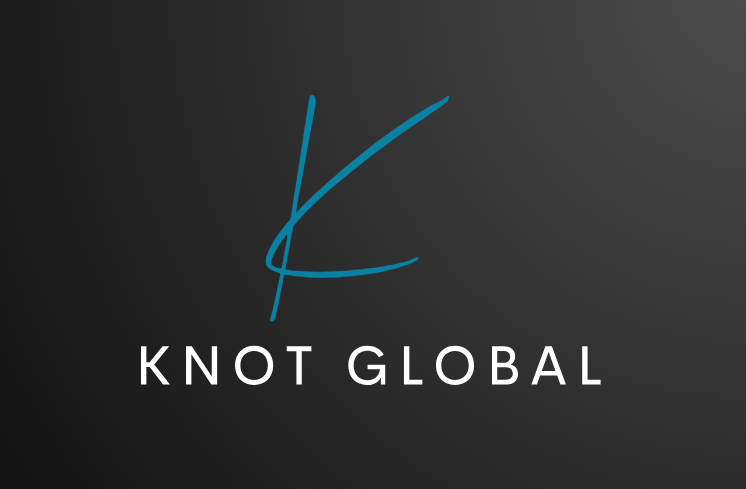
Introduction to Email Marketing for Ecommerce
Email marketing has become an indispensable tool for ecommerce businesses aiming to drive sales, enhance customer engagement, and build brand loyalty. In an era where digital communication is paramount, email provides a direct and personal way to reach potential and existing customers. Through targeted campaigns, ecommerce businesses can not only remind customers of their brand but also encourage repeat purchases and foster long-term customer relationships.
One of the most compelling attributes of email marketing is its ability to generate measurable results. Key metrics such as open rates, click-through rates, and conversion rates are critical indicators of a campaign’s success. Open rates reveal the effectiveness of subject lines and sender reputation, while click-through rates indicate the relevancy and appeal of the email content. Conversion rates, perhaps the most crucial metric, measure the ultimate effectiveness of an email in driving desired actions, such as making a purchase or signing up for a service.
Moreover, email marketing allows for segmentation and personalization, ensuring that the right message reaches the right audience at the right time. This personalization can significantly enhance user experience and increase engagement, as customers are more likely to interact with content that feels tailored specifically to them. Additionally, automated email sequences, such as welcome series and abandoned cart reminders, can optimize customer journeys and boost sales without requiring continuous manual effort.
In this blog post, we will provide a comprehensive review of the top 12 email marketing platforms specifically designed for ecommerce. Each platform will be evaluated based on its features, ease of use, pricing, and overall effectiveness in helping ecommerce businesses achieve their marketing goals. Whether you are a small online store or a large ecommerce enterprise, this guide will help you find the best email marketing solution to enhance your digital marketing strategy.
Criteria for Evaluating Email Marketing Platforms
When it comes to selecting the right email marketing platform for ecommerce, several critical criteria must be considered to ensure an optimal choice. These criteria serve as a foundation for evaluating and ranking various platforms, guiding ecommerce businesses in making informed decisions that align with their marketing goals and operational needs.
First and foremost, ease of use is a paramount factor. A user-friendly interface can significantly reduce the learning curve for businesses, allowing them to quickly create, manage, and optimize their email campaigns. Platforms that offer intuitive design tools and straightforward navigation are particularly valuable for ecommerce businesses that may not have extensive marketing expertise.
Pricing is another crucial consideration. Email marketing platforms come with varying pricing models, including subscription-based, pay-as-you-go, and tiered plans based on the number of subscribers or emails sent. Ecommerce businesses must evaluate the cost-effectiveness of these options, ensuring they receive ample value for their investment without overextending their budget.
The range of features offered by an email marketing platform is also essential. Key features include automation, which allows businesses to streamline their marketing efforts by sending targeted emails based on customer behavior and preferences. Segmentation features enable precise targeting, enhancing the relevance of email content and improving engagement rates. Robust analytics provide insights into campaign performance, helping businesses refine their strategies for better results.
Integration capabilities with popular ecommerce platforms such as Shopify and WooCommerce are vital for seamless operations. Effective integrations facilitate the synchronization of customer data, enabling personalized and timely email communications. This interoperability can lead to enhanced customer experiences and increased sales conversions.
Lastly, customer support is a critical aspect that cannot be overlooked. Reliable and responsive support ensures that any issues or queries are promptly addressed, minimizing downtime and disruptions in marketing activities. This support can come in various forms, including live chat, email, phone support, and comprehensive knowledge bases.
These criteria collectively provide a comprehensive framework for assessing email marketing platforms, ensuring that ecommerce businesses can select a solution that meets their specific needs and drives their marketing success.
Mailchimp
Mailchimp is a highly popular email marketing platform known for its user-friendly interface and robust feature set. It offers a range of tools designed to help businesses of all sizes create, send, and analyze email campaigns. Key features include a drag-and-drop email builder, audience segmentation, and advanced analytics. Mailchimp also integrates seamlessly with major ecommerce platforms such as Shopify and WooCommerce.
Pricing plans start with a free tier, offering basic email marketing tools for up to 2,000 subscribers. Paid plans begin at $9.99 per month, providing additional features such as custom branding, A/B testing, and advanced analytics.
Pros: Easy to use, comprehensive analytics, strong integration with ecommerce platforms. Cons: Higher-tier plans can be expensive, limited automation in the free plan.
Constant Contact
Constant Contact is renowned for its ease of use and excellent customer support. It offers a range of features that are particularly beneficial for ecommerce businesses, including email templates, list segmentation, and real-time reporting. The platform also integrates well with popular ecommerce platforms like Shopify and BigCommerce.
Pricing starts at $20 per month, with higher-tier plans offering additional features like advanced automation and social media marketing tools.
Pros: User-friendly, excellent support, strong ecommerce integrations. Cons: Limited customization options, higher cost compared to some competitors.
Klaviyo
Klaviyo is a powerful email marketing platform specifically designed for ecommerce businesses. It offers advanced segmentation, personalized email templates, and robust analytics. Klaviyo integrates seamlessly with major ecommerce platforms such as Shopify, Magento, and WooCommerce.
Pricing is based on the number of contacts, starting at $20 per month for up to 500 contacts.
Pros: Advanced segmentation, strong ecommerce focus, excellent analytics. Cons: Can be complex for beginners, higher cost as contact list grows.
Sendinblue
Sendinblue offers a comprehensive suite of email marketing tools, including a drag-and-drop email editor, SMS marketing, and advanced automation. It integrates well with various ecommerce platforms, including WooCommerce and Shopify.
Pricing starts with a free plan, offering up to 300 emails per day. Paid plans begin at $25 per month, providing additional features like A/B testing and advanced reporting.
Pros: Affordable, multi-channel marketing, strong automation features. Cons: Limited free plan, interface can be less intuitive.
GetResponse
GetResponse is a versatile email marketing platform offering a wide range of features such as email templates, landing pages, and webinar hosting. It integrates with popular ecommerce platforms, including Shopify and Magento.
Pricing starts at $15 per month for the Basic plan, which includes essential email marketing tools. Higher-tier plans offer advanced features like CRM and automation.
Pros: Versatile, good integration options, affordable. Cons: Interface can be overwhelming, limited customer support in lower-tier plans.
Aweber
Aweber is known for its ease of use and excellent customer support. It offers features like email templates, automation, and detailed analytics. Aweber integrates seamlessly with ecommerce platforms such as Shopify and WooCommerce.
Pricing starts at $19 per month, with a 30-day free trial available.
Pros: User-friendly, strong customer support, good ecommerce integrations. Cons: Limited advanced features, higher cost compared to some competitors.
ActiveCampaign
ActiveCampaign is a powerful email marketing platform offering advanced automation, segmentation, and CRM features. It integrates well with popular ecommerce platforms, including Shopify and WooCommerce.
Pricing starts at $9 per month for the Lite plan, which includes essential email marketing tools. Higher-tier plans offer additional features like advanced automation and CRM.
Pros: Advanced features, strong automation, good ecommerce integrations. Cons: Can be complex for beginners, higher cost as contact list grows.
Omnisend
Omnisend is an email marketing platform specifically designed for ecommerce businesses. It offers features like email templates, automation, and SMS marketing. Omnisend integrates seamlessly with major ecommerce platforms such as Shopify, WooCommerce, and BigCommerce.
Pricing starts with a free plan, offering up to 500 emails per month. Paid plans begin at $16 per month, providing additional features like automation and SMS marketing.
Pros: Ecommerce-focused, multi-channel marketing, strong automation features. Cons: Limited free plan, higher cost as contact list grows.
MailerLite
MailerLite offers a simple and affordable email marketing solution with features like email templates, automation, and landing pages. It integrates well with popular ecommerce platforms like Shopify and WooCommerce.
Pricing starts with a free plan, offering up to 1,000 subscribers. Paid plans begin at $10 per month, providing additional features like automation and custom domains.
Pros: Affordable, user-friendly, good ecommerce integrations. Cons: Limited advanced features, interface can be less intuitive.
Drip
Drip is a powerful email marketing platform designed for ecommerce businesses. It offers advanced automation, segmentation, and personalized email templates. Drip integrates seamlessly with major ecommerce platforms such as Shopify, WooCommerce, and Magento.
Pricing starts at $19 per month for up to 500 subscribers.
Pros: Advanced features, strong ecommerce focus, excellent analytics. Cons: Higher cost as contact list grows, can be complex for beginners.
ConvertKit
ConvertKit is an email marketing platform designed for creators and small businesses. It offers features like email templates, automation, and landing pages. ConvertKit integrates well with popular ecommerce platforms like Shopify and WooCommerce.
Pricing starts at $29 per month for up to 1,000 subscribers.
Pros: User-friendly, good automation features, strong ecommerce integrations. Cons: Higher cost compared to some competitors, limited advanced features.
Benchmark Email
Benchmark Email offers a range of features including email templates, automation, and detailed analytics. It integrates with popular ecommerce platforms like Shopify and WooCommerce.
Pricing starts with a free plan, offering up to 2,000 subscribers. Paid plans begin at $13.99 per month, providing additional features like automation and advanced analytics.
Pros: Affordable, user-friendly, good ecommerce integrations. Cons: Limited advanced features, interface can be less intuitive.
Conclusion and Recommendations
Throughout this comprehensive review of the 12 best email marketing platforms for ecommerce, we have examined various features, pricing structures, and usability aspects. Each platform offers unique advantages, making them suitable for different types of ecommerce businesses.
For small businesses with limited budgets, platforms like Mailchimp and Sendinblue stand out due to their affordability and user-friendly interfaces. These tools provide essential features that can help small businesses grow their email marketing efforts without overwhelming them with complexity.
Enterprises and larger ecommerce businesses may find platforms such as Klaviyo and Salesforce Marketing Cloud more fitting. These options offer advanced functionalities, robust analytics, and extensive customization options that cater to the sophisticated needs of larger operations. Their scalability ensures they can support growing email lists and complex marketing strategies.
For niche markets or businesses with specific requirements, ActiveCampaign and Drip offer specialized features like CRM integration and advanced automation. These platforms are designed to help businesses create highly personalized and targeted email campaigns, which can be particularly beneficial for niche markets aiming to build strong customer relationships.
Based on common ecommerce needs, if budget constraints are a primary concern, starting with a platform that offers a free trial or a low-cost entry plan, such as Mailchimp or Sendinblue, is advisable. For businesses seeking specific features like advanced segmentation or multi-channel marketing, platforms like ActiveCampaign and OmniSend may be more suitable.
In conclusion, the best email marketing platform for your ecommerce business will depend on your specific needs, budget, and the scale of your operations. We encourage readers to take advantage of free trials or demos offered by these platforms to determine the best fit for their business. Feel free to share your experiences or ask questions in the comments section below, as your insights can help others make informed decisions.



